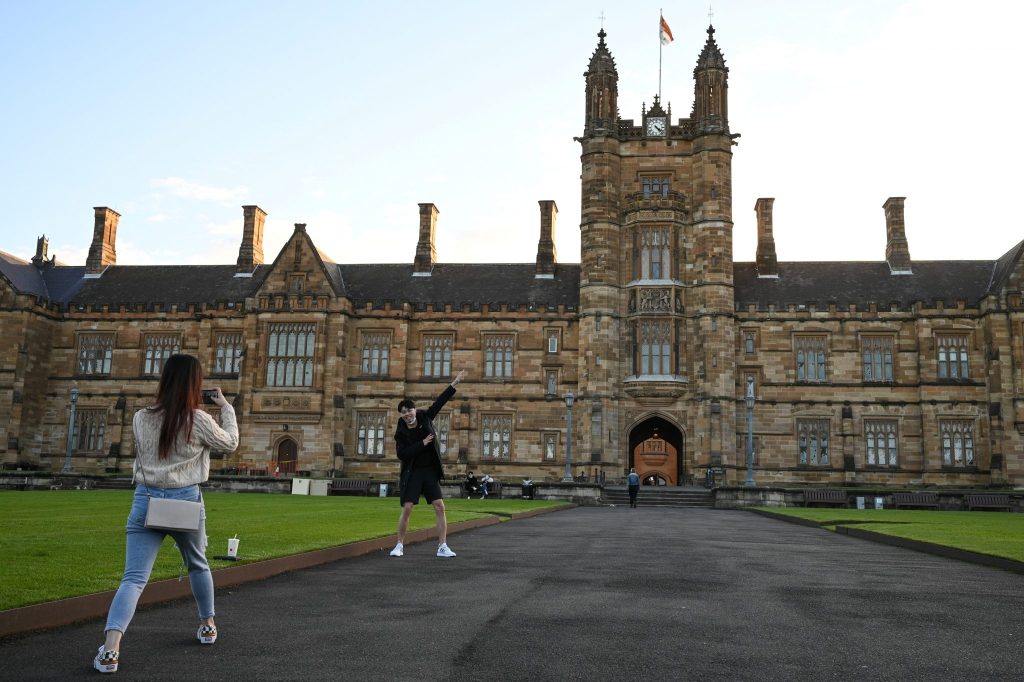Rankings fever is in the air. Australian vice-chancellors anxiously scour the latest scores, looking for
any improvements. A declining rating may lessen their attractiveness to international students from
Asia, upon whom their institutional budgets increasingly depend.
The longstanding underfunding of Australian universities, including research, has driven vice-chancellors to seek out more and more international students, whose higher tuition fees sustain institutional bottom lines, especially for research-intensive universities. The effects of the COVID-19 crisis were felt unevenly across the higher education system. The Group of Eight (Go8) universities were least affected, while newer and regional universities suffered a greater decline in international enrolments. There were concerns that the new round of ratings would only strengthen this trend.
Depending on which rankings scheme is consulted, the findings are either cause for joy or concern. The widely cited Times Higher Education ranking showed that the three leading institutions in the Go8 — the University of Melbourne, the University of Sydney and The Australian National University (ANU) — all declined modestly from 2023.
The QS ranking, showed dramatic rises for the University of Sydney and the University of Melbourne — both shot into the top 20 — but a slight drop for the ANU. The third major ranking scheme, the Academic Ranking of World Universities, has not released its 2024 survey, but its 2023 ratings for the University of Sydney and the ANU differed significantly from that of the other two schemes. Neither the University of Sydney nor the ANU were rated above 70, though the University of Melbourne was rated in the 30s.
Faced with such divergent findings, it becomes challenging to place confidence in their validity. A single number based on a composite index may struggle to accurately reflect the diverse missions, strengths and contexts of universities. The mostly commercial bodies responsible for the rankings do not publish precise details of how rankings are calculated — notably details of their weightings.
Some rankings rely excessively on reputational survey data and tend to be biased towards STEM disciplines and Western data collection systems, diminishing the significance of other methods and humanities and social science disciplines. They have been criticised for perpetuating a form of coloniality.
Rankings encourage forms of game-playing by universities. A large university in one of Australia’s capital cities celebrated a top rating in a global sustainability ranking of universities. Emblazoned on its buildings, buses and billboards, a major advertising exercise promptly announced the university as ‘first in the world’, deliberately omitting the fact that the ranking was restricted to sustainability.
Concerns are growing over not just the games that individual institutions play, but the pressure that rankings exert on academics to lift their research output and forms of corruption — fake data, fake journals and plagiarism — used to boost personal and institutional rankings. Increasingly, there are concerns about the validity of the entire ranking exercise. Claims by ranking organisations that the data submitted by universities is rigorously checked need to be viewed with scepticism.
Several of China’s top ranked universities have recently withdrawn from providing data to the rankers and the government will no longer reward Social Sciences Citation Index (SSCI) journals, preferring leading domestic journals.
The Association of Universities in the Netherlands has signalled its dissatisfaction with ranking methodologies, describing the weighting of attributes as ‘arbitrary and debatable‘. Utrecht University has already withdrawn from the Times Higher Education ranking and voiced concerns about the QS ranking.
In the United States, more universities are withdrawing from the US News and World Report rankings. A mathematics professor at Columbia University recently exposed the institution’s submission of ‘inaccurate, dubious or highly misleading’ data to US News. Columbia University subsequently withdrew from the entire exercise.
Australian universities’ competitiveness in the global quest for academic talent and attractiveness to international students are crucial factors in understanding Australia’s higher education rankings overall. In an increasingly multipolar world, highly reputable universities in China and Singapore are significant magnets for international students.
China’s capacity to enrol US students has been affected by the rancorous relations between the United States and China. Similar rivalrous relations, including visa restrictions and cancellations are also making it difficult for many Chinese students to enrol in US institutions. The United Kingdom has seen a significant decline in PhD student enrolments from China, who constitute 28 per cent of total enrolments at that level.
These developments could conceivably work in Australia’s favour. But lengthy visa delays and blunt and intrusive security measures, such as the foreign interference legislation, introduced by the former Australian prime minister Morrison’s government, are driving some students elsewhere. Overall, despite growing international competition from Asia, Australia’s traditional advantages of being the only major English language system in the region, its reputation as a safe country and quality institutions will continue to stand it in good stead.
Anthony Welch is Professor of Education at the University of Sydney.

